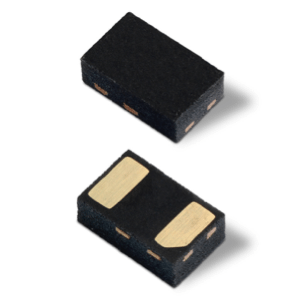The highest surge density of any Littelfuse TVS Diode Array
Beijing, China, July 12, 2017 —Littelfuse, Inc., the global leader in circuit protection, today introduced a series of TVS Diode Arrays (SPA® Diodes) optimized to protect DC powerlines for PoweredUSB interfaces from damaging electrostatic discharges (ESDs).

SP11xx Series TVS Diode Arrays employ Zener diodes fabricated in a proprietary silicon avalanche technology to protect each I/O pin in the interface. These robust devices offer high surge tolerance, with the highest surge density per square millimeter of any TVS Diode Array that Littelfuse offers, and extremely low dynamic resistance across all of the relevant voltage levels for PoweredUSB interfaces. They can safely absorb repetitive ESD strikes at ±30kV without performance degradation and safely dissipate 80A of 8/20μs surge current with very low clamping voltages.
SP11xx Series TVS Diode Arrays are designed to prevent premature failure or thermal issues related to fast-charging batteries, such as those used in tablets and smartphones, by limiting exposure to the fast transients associated with plugging into AC/DC converters that could introduce dirty power to the battery. They are also useful for protecting Vbus lines for USB 3.1 type C interfaces, which are increasingly common in handheld devices.
Additional applications for SP11xx TVS Diode Arrays include ESD protection for switches/buttons, test equipment/instrumentation, point-of-sale terminals, medical equipment, notebooks/desktops/servers, computer peripherals and automotive electronics.
“The SP11xx Series combines high surge tolerance for a higher level of ESD protection and extremely low dynamic resistance for faster response,” said Tim Micun, business development manager for TVS Diode Arrays at Littelfuse. “They offer designers the flexibility to choose what is most important for their application, whether that’s size, cost, or performance.”
SP11xx Series TVS Diode Arrays offer these key benefits:
• Extremely low dynamic resistance (RDYN) ensures a faster response to ESD transients for better performance.
• Discrete unidirectional design is the most appropriate solution for DC interfaces and provides the lowest dynamic resistance available.
• Flat surge performance across current profiles provides greater protection during extreme surge or ESD events.





